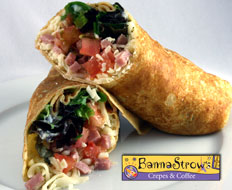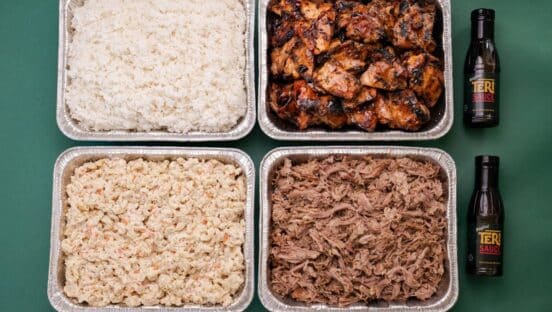On April 10, Mauricio Acevedo, the CEO of Miami-based crepe concept BannaStrow’s, will head to India to visit Mumbai, Hyderabad, and New Delhi. While there, Acevedo will meet with entrepreneurs who are interested in partnering with the brand to open stores in each market.
But BannaStrow’s isn’t your typical global quick serve. In fact, it’s not really global at all—not yet, anyway. The chain has only four units, all of which are in the Miami area. But, thanks to some help from the U.S. Commercial Service office, which organized the India trip for BannaStrow’s and 11 other brands, that could change soon.
“Most U.S. companies don't export, and a lot of times the reason for that is companies are kind of intimidated by the export process,” says Curt Cultis, spokesman for the U.S. Commercial Service. “About 95 percent of the world's consumers are outside of the U.S., so if you're only selling domestically, you're missing out on a large potential customer base.”
The U.S. Commercial Service has several programs designed to help domestic companies export goods or, in the case of quick serves, open locations abroad. “Trade missions” to other countries is one such program, and the Service organizes trips for franchises to visit one high-potential market per year. (Because of increased demand from both sides of the ocean, the Service plans to also host trade missions more frequently in the future.)
“We're basically doing a lot of business matchmaking where overseas officials screen the best prospects, and we'll set up meetings with franchises,” Cultis says. “It saves U.S. companies a lot of time and effort.”
In addition to seeking out and screening potential business partners, the Service also sets up conference calls prior to the trip, gives U.S. companies information on each of the prospective partners, and makes hotel and travel arrangements.
The missions make it easier for smaller chains like BannaStrow’s to get a piece of the international market.
“It's not the same to go as a concept by yourself and try to get partners as it is to go with the hand of the U.S. government and the U.S. Commercial Service helping you to set up the right meetings and meet the right people,” Acevedo says.
He should know; he’s in talks to open BannaStrow’s stores in the United Kingdom, Panama, and Columbia, all without government help. For those markets, Acevedo had to place an advertisement seeking business partners in local papers, and then make arrangements on his own to meet the people who responded—many of whom were a poor fit.
Of course, the capacity for the U.S. Commercial Service trips is limited; BannaStrow’s was one of 12 brands chosen to go to India from hundreds of applicants.
“One of the things we look for in submissions is the potential for making sales in that particular country,” Cultis says. While having a proven track record for expansion helps, other factors come into consideration, too.
Acevedo, for example, feels that low startup costs and the versatility of BannaStrow’s core product make it an ideal fit for international expansion. “Our crepes are very flexible in terms of the market they can be in,” he says. “Here in Miami, we have crepes targeting the customer, and we can easily create crepes targeting the Indian customer.”
Once a brand goes on one trade mission, it’s also easier to be selected for future trips. “The U.S. Commercial Service wants to make sure they’re choosing a company that's going to do business respectfully because the entire trip is in their name,” says Hair Parra, the vice president of international development for Wing Zone, which was also selected to attend the India trip this month. Parra went to Mexico with the U.S. Commercial Service in 2010 in hopes to expand the Florida-based concept to the country.
“While I was there, I interviewed around 13 or 14 groups that were interested in Wing Zone,” Parra says. Although the concept was in talks to create partnerships with some of the people Parra met on the trip, Wing Zone ultimately decided to hold off on expansion plans there because of safety concerns.
Brands that are selected to go on a trade mission can expect to pay fees ranging from $2,000 to $5,000, depending on the number of cities scheduled and other market-related factors. But Acevedo says that’s a small price to pay for the assistance in taking BannaStrow’s into such a promising market.
“When I come back, I will have a master franchisee or an original developer for each of the cities I’m visiting,” he says.
The U.S. Commercial Service also offers less involved services, many of which come with only minimal fees. Basic counseling, for example, is free of charge.






